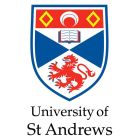When he meets a simple geometrical construction, for instance in the honeycomb, he would fain refer it to physical instinct, or to skill and ingenuity, rather than to the operation of physical forces or mathematical laws; when he sees in a snail, or nautilus, or tiny foraminiferal or radiolarian shell a close approach to sphere or spiral, he is prone of old habit to believe that after all it is something more than a spiral or a sphere, and that in this "something more" there lies what neither mathematics nor physics can explain. In short, he is deeply reluctant to compare the living with the dead, or to explain by geometry or by mechanics the things which have their part in the mystery of life.
D'Arcy Wentworth Thompson, On Growth and Form (1917)

